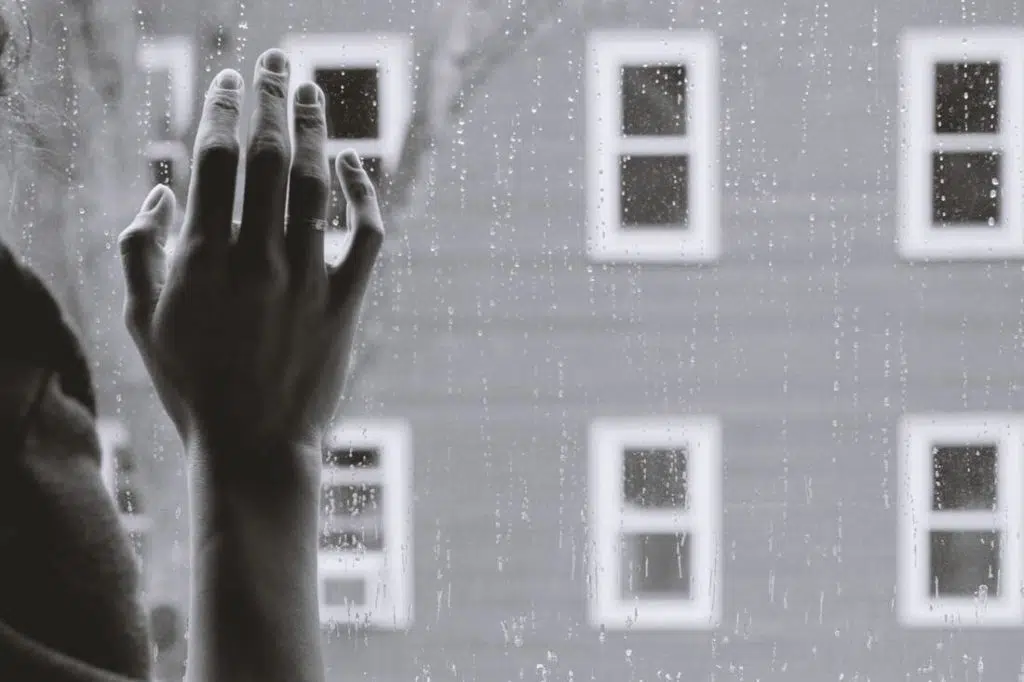There’s no manual on how to cope with loss and indeed no right or wrong way to go through the stages of grief that might come from it. Mourning is an intimate and unique experience for each of us. If you or someone you love are going through a loss, the new emotions may feel overwhelming and confusing.
There are at least five emotions associated with grief. Feeling this way is natural and even necessary. These emotions are forward steps in the healing journey, even when it doesn’t feel like it now.
Healing from a loss is possible, but it does take time and patience. Even if you’re having a tough time with it, resources like counseling and support groups can help you cope with the five stages of grief.
5 Stages of grief: The Kübler-Ross model
To better understand the grieving process, many mental health experts and researchers have dedicated years to studying loss and the emotions that come with it.
One of these experts was Elisabeth Kübler-Ross, a Swiss American psychiatrist. She created the Kübler-Ross model, the theory of the five stages of grief and loss.
In her 1969 book, “On Death and Dying,” Kübler-Ross examined the five most common emotional reactions to loss
DENIAL
For some people, this may be the first response to loss. Denial is a common defense mechanism. It may help you buffer the immediate shock of the hurtful situation.
As an immediate reaction, you might doubt the reality of the loss at first. A few examples of this type of denial are:
- If you’re facing the death of a loved one, you might find yourself fantasizing someone will call to say there’s been a mistake and nothing happened.
- If you’re dealing with a breakup, you might convince yourself your partner will soon regret leaving and return to you.
- If you lost your job, you might feel your former boss will offer you the position after realizing they’ve made a mistake.
Denial is a temporary response that carries you through the first wave of pain. Eventually, when you’re ready, the feelings and emotions you have denied will resurface, and your healing journey will continue.
ANGER
Sometimes pain takes other forms. According to Kübler-Ross, pain from a loss is often redirected and expressed as anger. Feeling intensely angry might surprise you or your loved ones, but it’s not uncommon. This anger serves a purpose.
It might be particularly overwhelming for some people to feel anger because, in many cultures, anger is a feared or rejected emotion. You might be more used to avoiding it than confronting it.
BARGAINING
Bargaining is a stage of grief that helps you hold on to hope in a situation of intense pain. You might think that you’re willing to do anything and sacrifice everything if your life is restored to how it was before the loss.
During this internal negotiation, you could think about “what if” or “if only”: what if I did XYZ, then everything will go back to normal; if only I had done something differently to prevent the loss. Guilt might be an accompanying emotion during this stage as you inadvertently might be trying to regain some control, even if at your own expense.
All these emotions and thoughts aren’t uncommon. As hard as it might feel, this helps you heal as you confront the reality of your loss.
DEPRESSION
Like in all the other stages of grief, depression is experienced in different ways. There’s no right or wrong way to go about it, nor is there a deadline to overcome it. In this instance, depression isn’t a sign of a mental health condition. Instead, it’s a natural and appropriate response to grief.
During the depression stage, you start facing your present reality and the inevitability of the loss you’ve experienced. Understandably, this realization may lead you to feel intense sadness and despair.
This intense sadness could cause you to feel different in other aspects too. You could feel:
- fatigued
- vulnerable
- confused and distracted
- not wanting to move on
- not hungry or wanting to eat
- not able or willing to get ready in the morning
- not able to enjoy what you once did
ACCEPTANCE
Reaching acceptance isn’t necessarily about being OK with what happened. Depending on your experience, it might be understandable if you never feel this way. Acceptance is more about acknowledging the losses you’ve experienced, learning to live with them, and how readjusting your life accordingly.
You might feel more comfortable reaching out to friends and family during this stage, but it’s also natural to feel you prefer to withdraw sometimes. You may also feel like you sometimes accept the loss and then move to another stage of grief again. This back-and-forth between stages is natural and a part of the healing process.
In time, you may eventually find yourself stationed at this stage for long periods of time.
That doesn’t mean you’ll never feel sadness or anger again toward your loss, but your long-term perspective about it and how you live with this reality will be different.
If you feel overwhelmed by grief, loss, or trauma, you do not have to go through it alone. You can find several resources online to provide counseling and support if you are in need.

